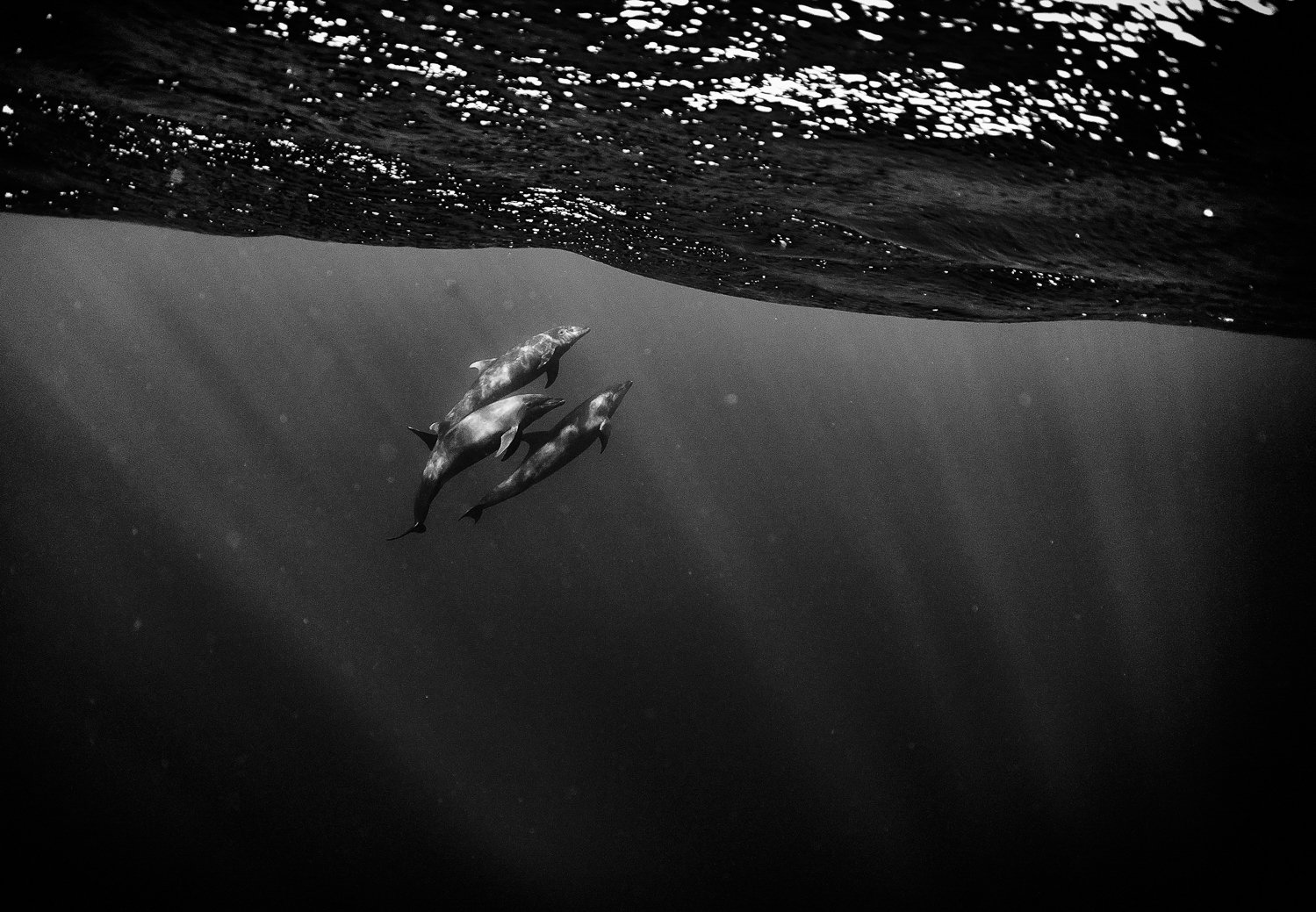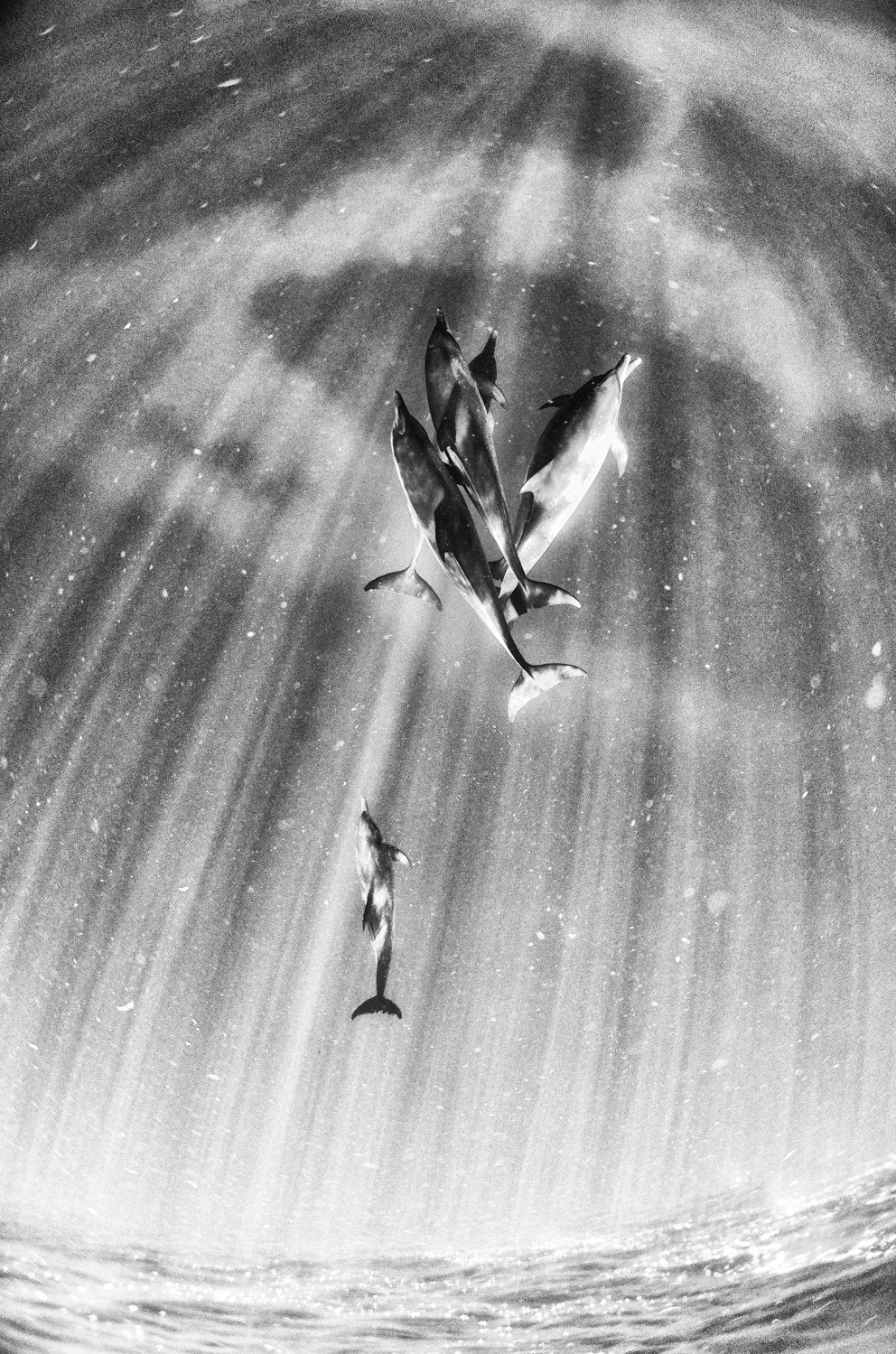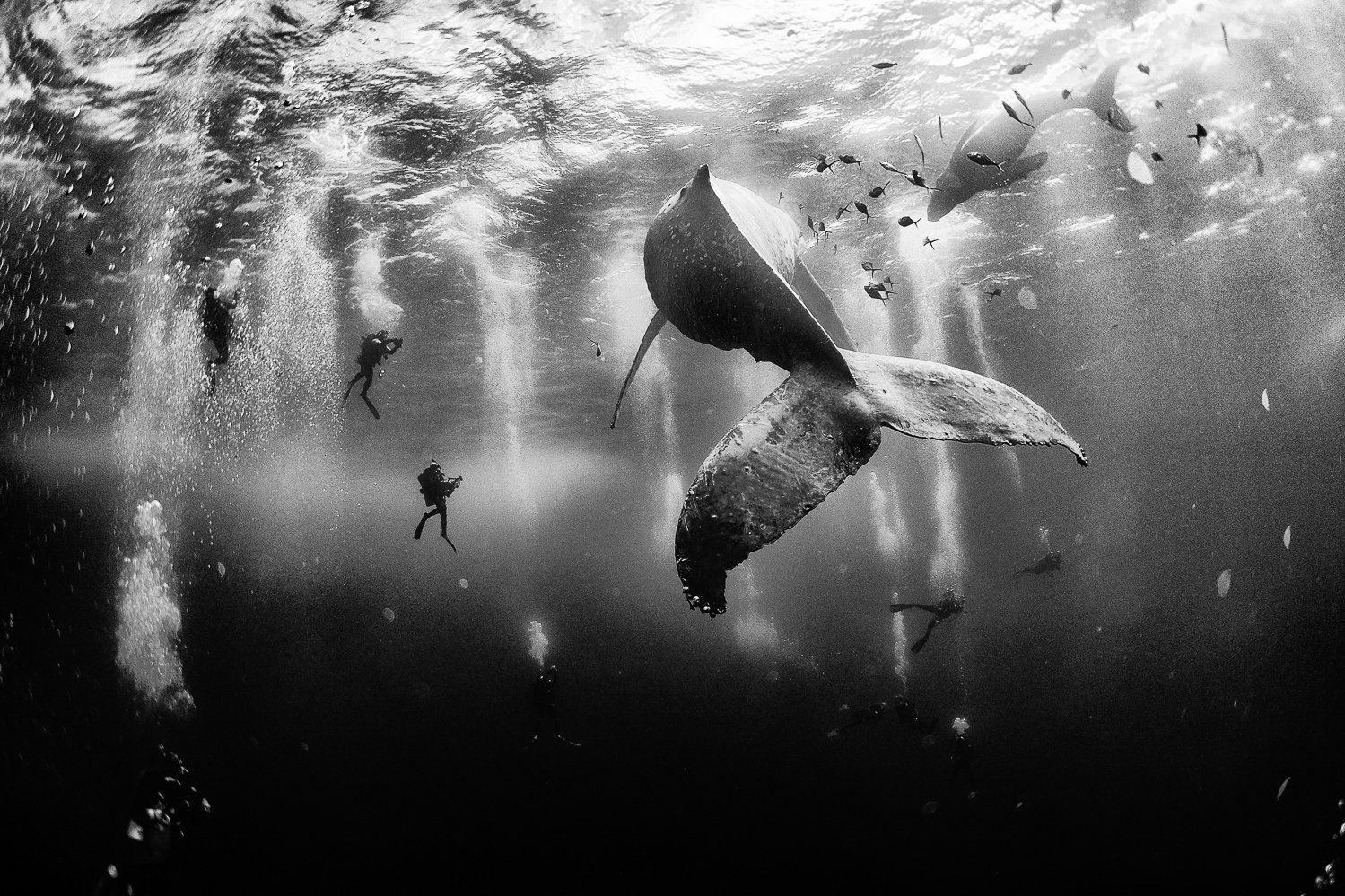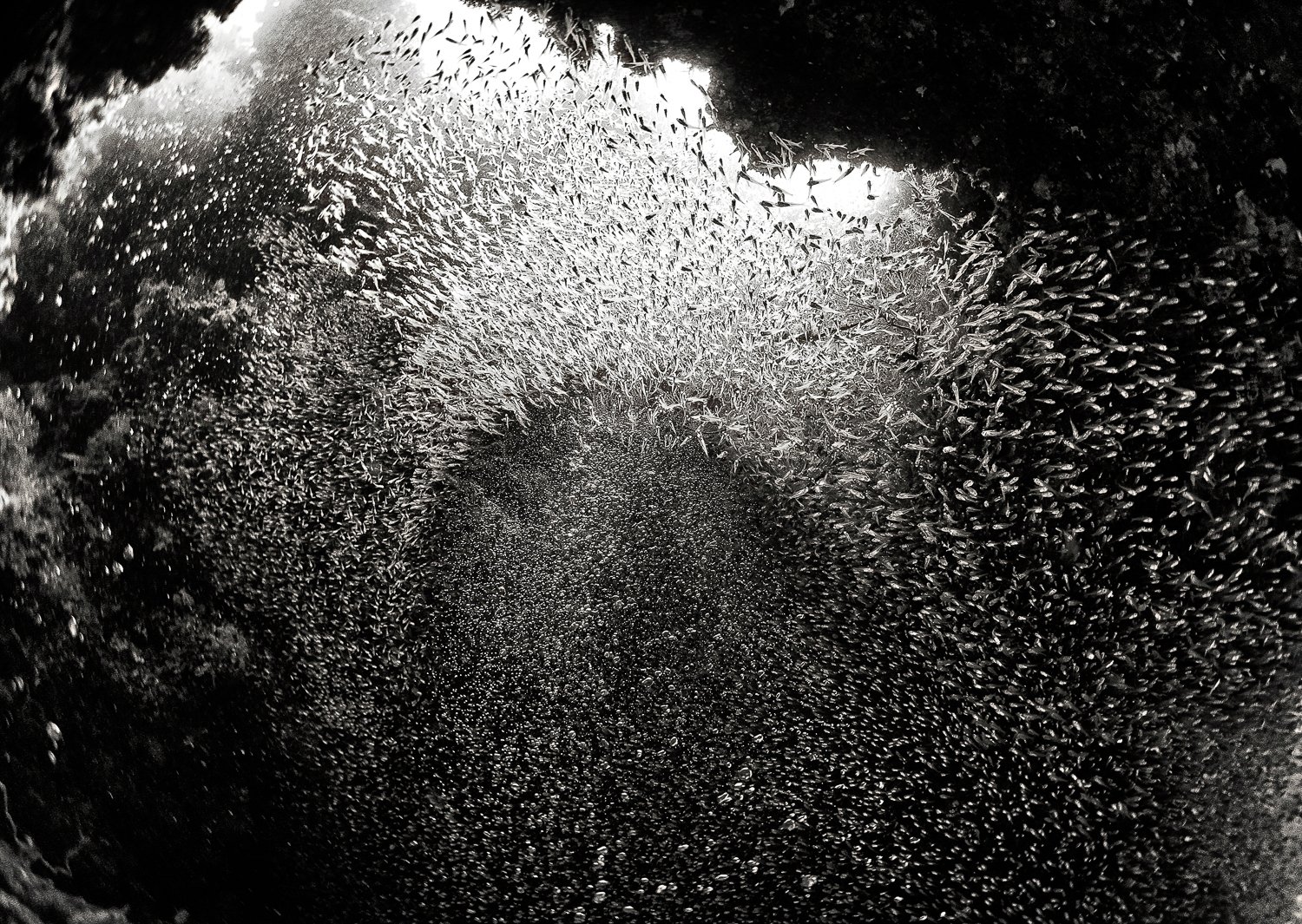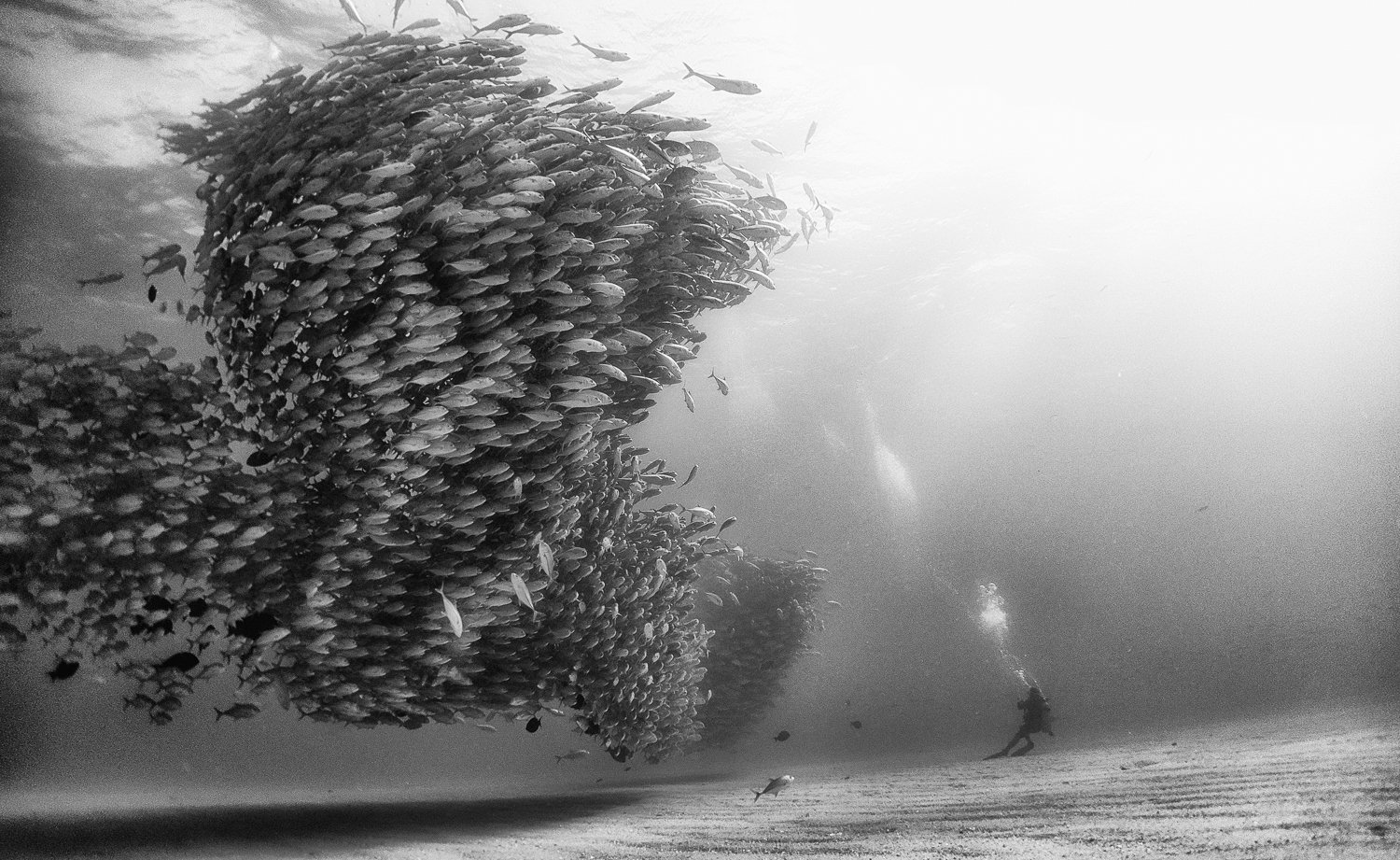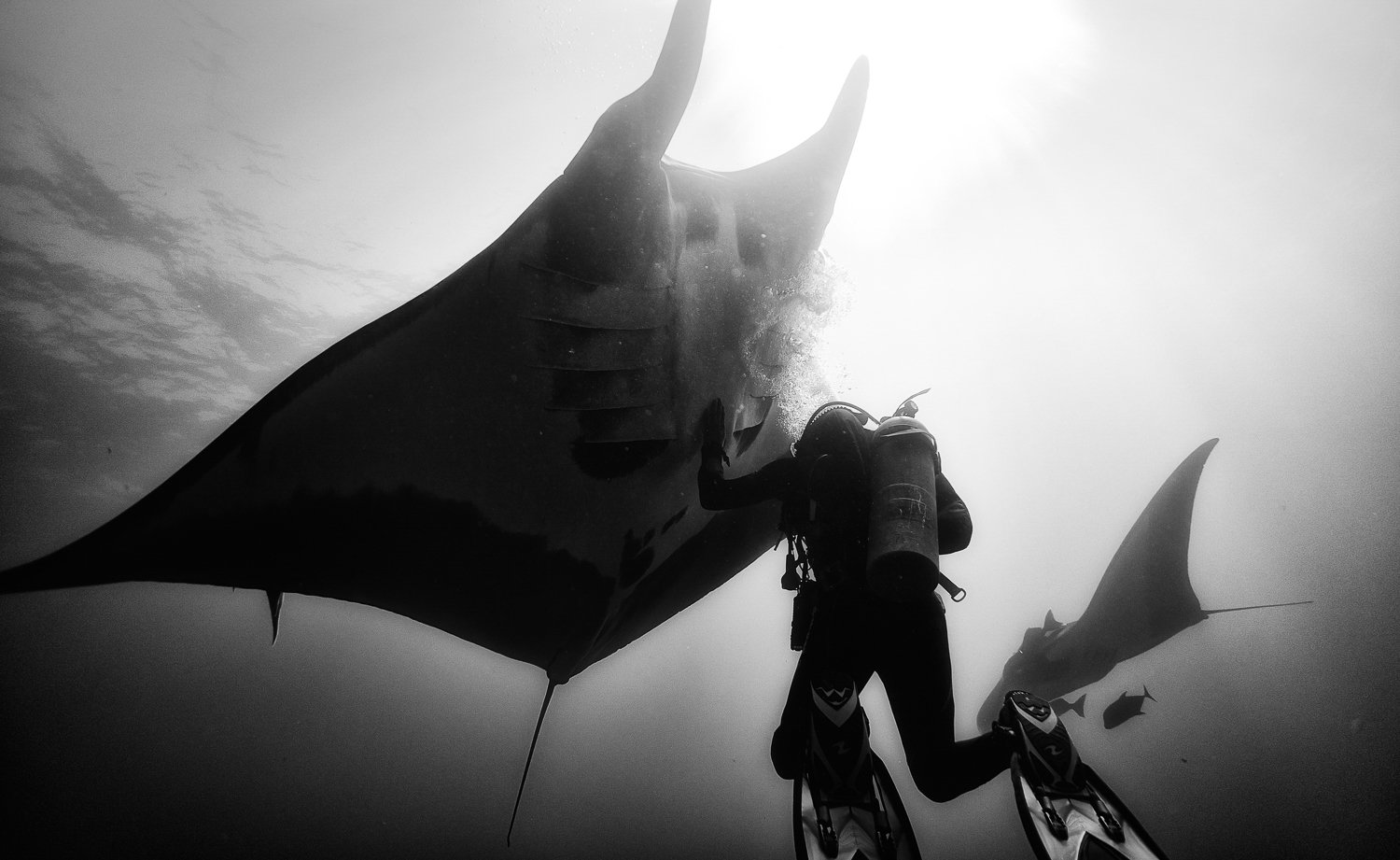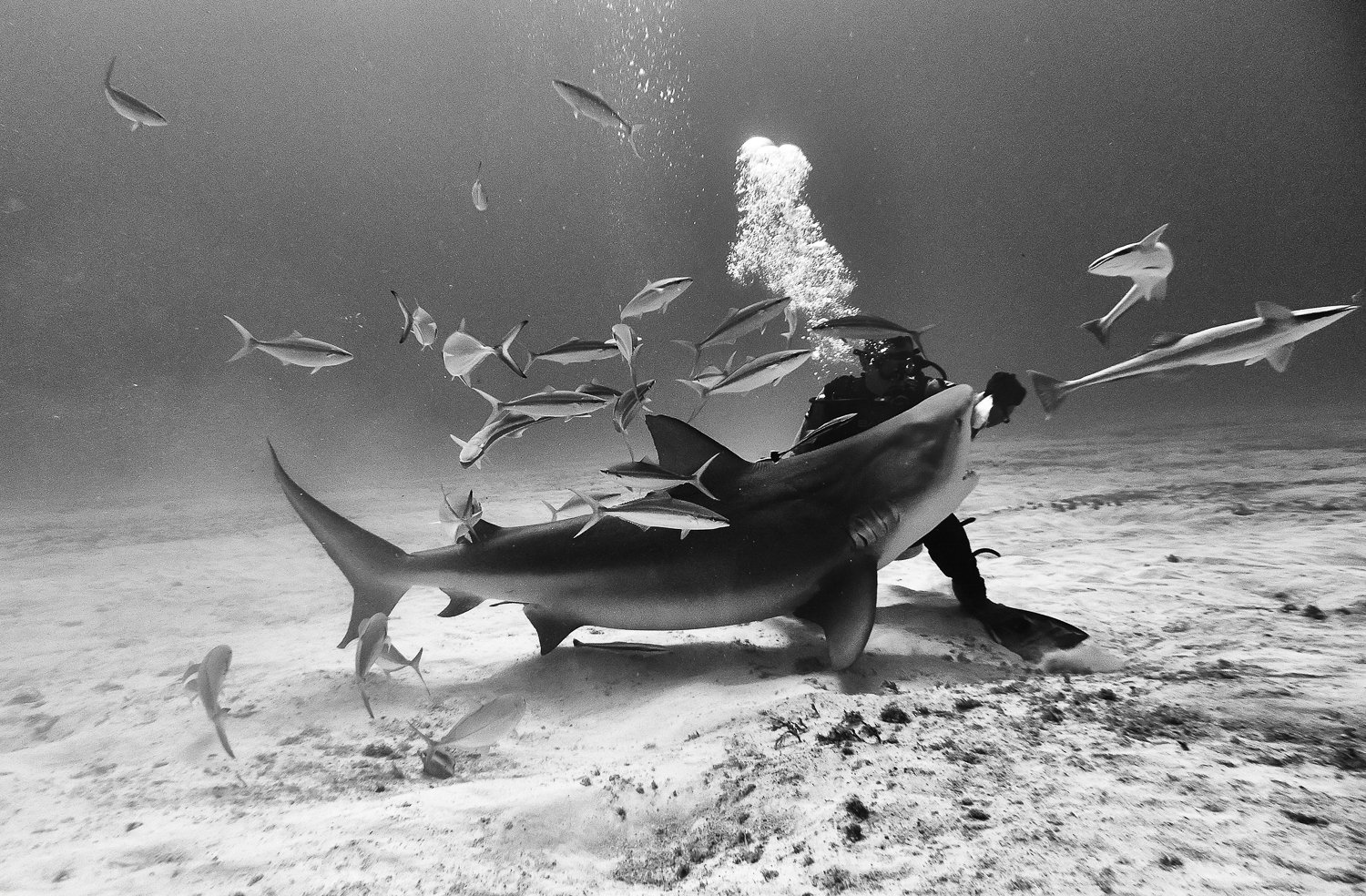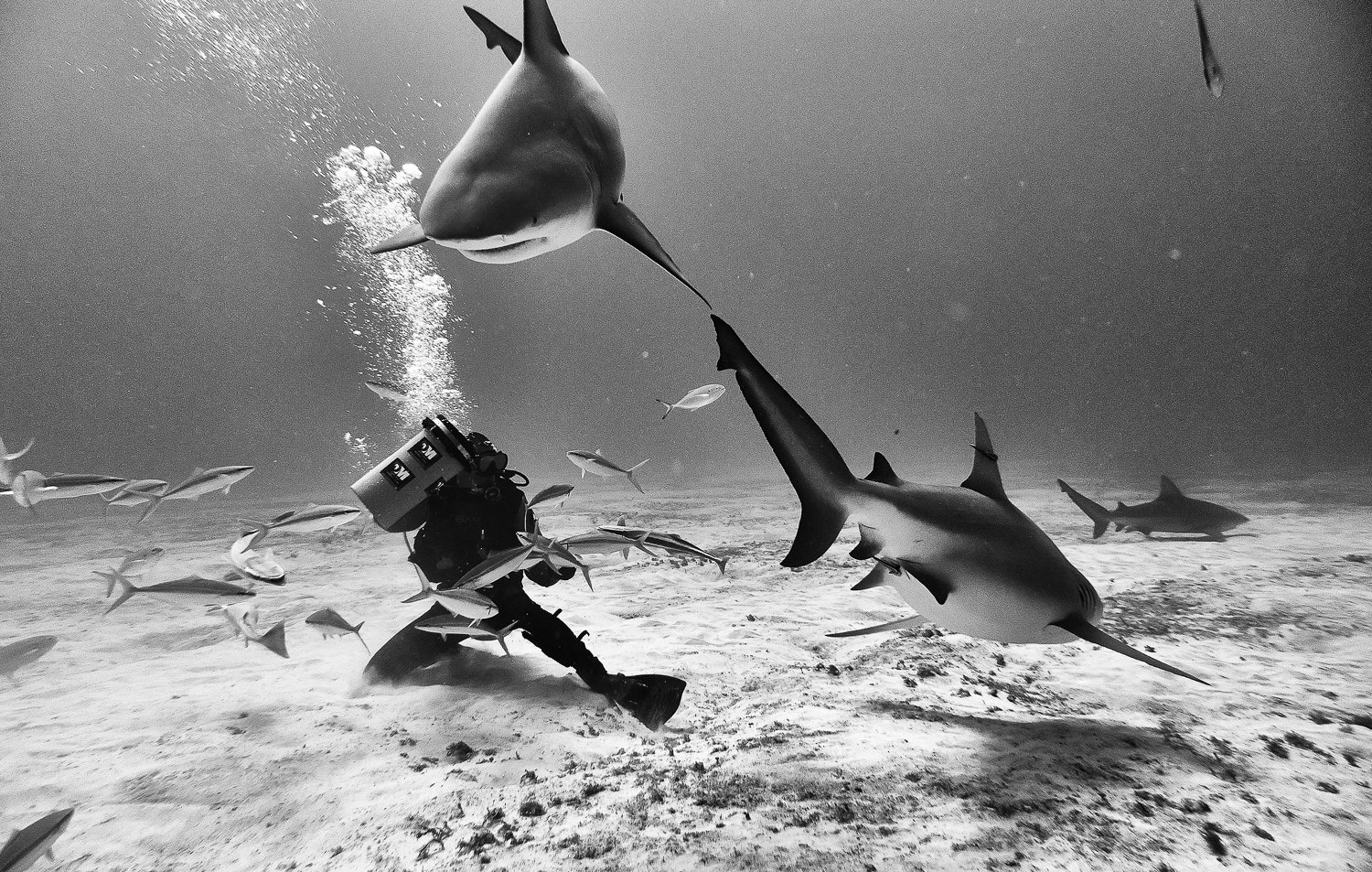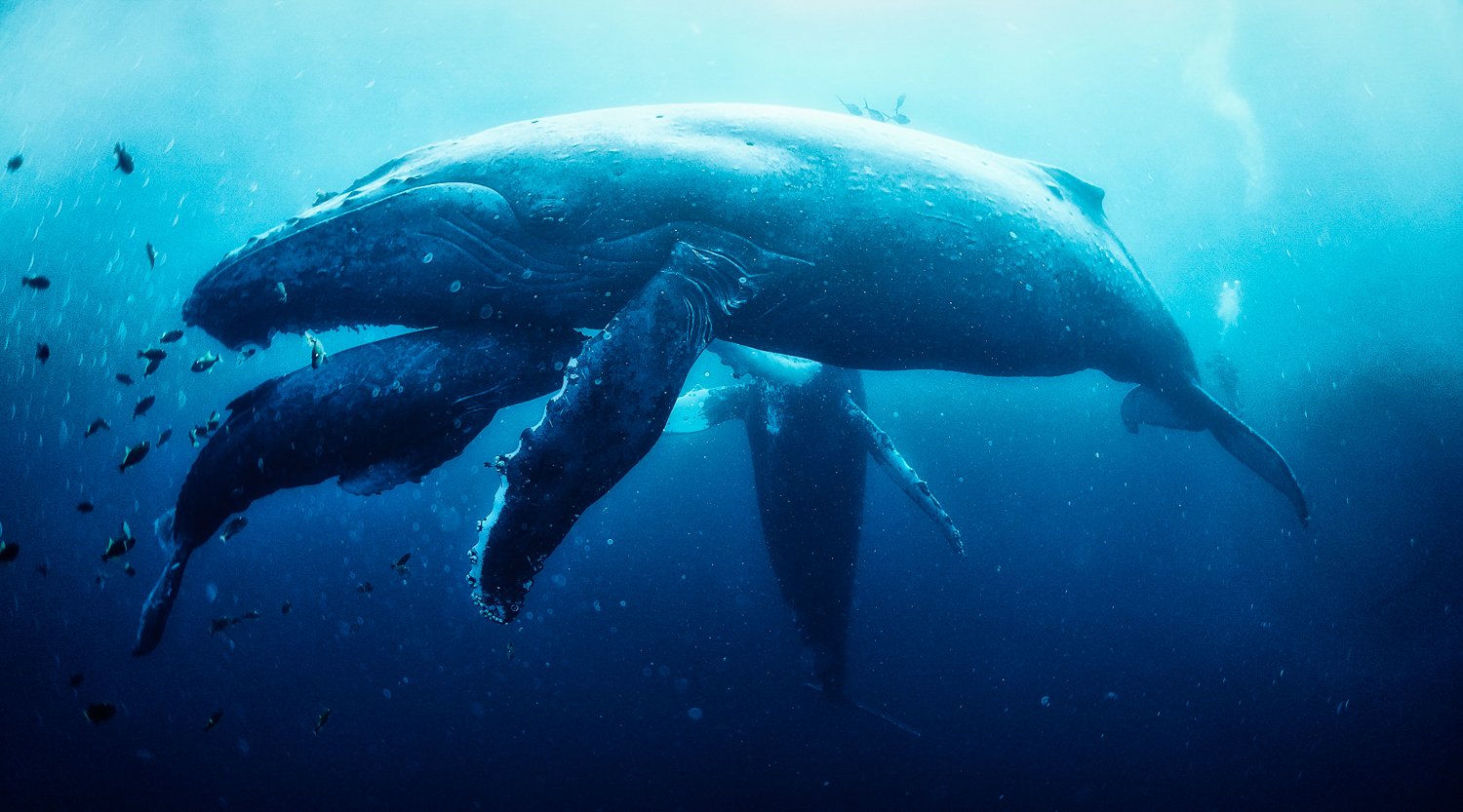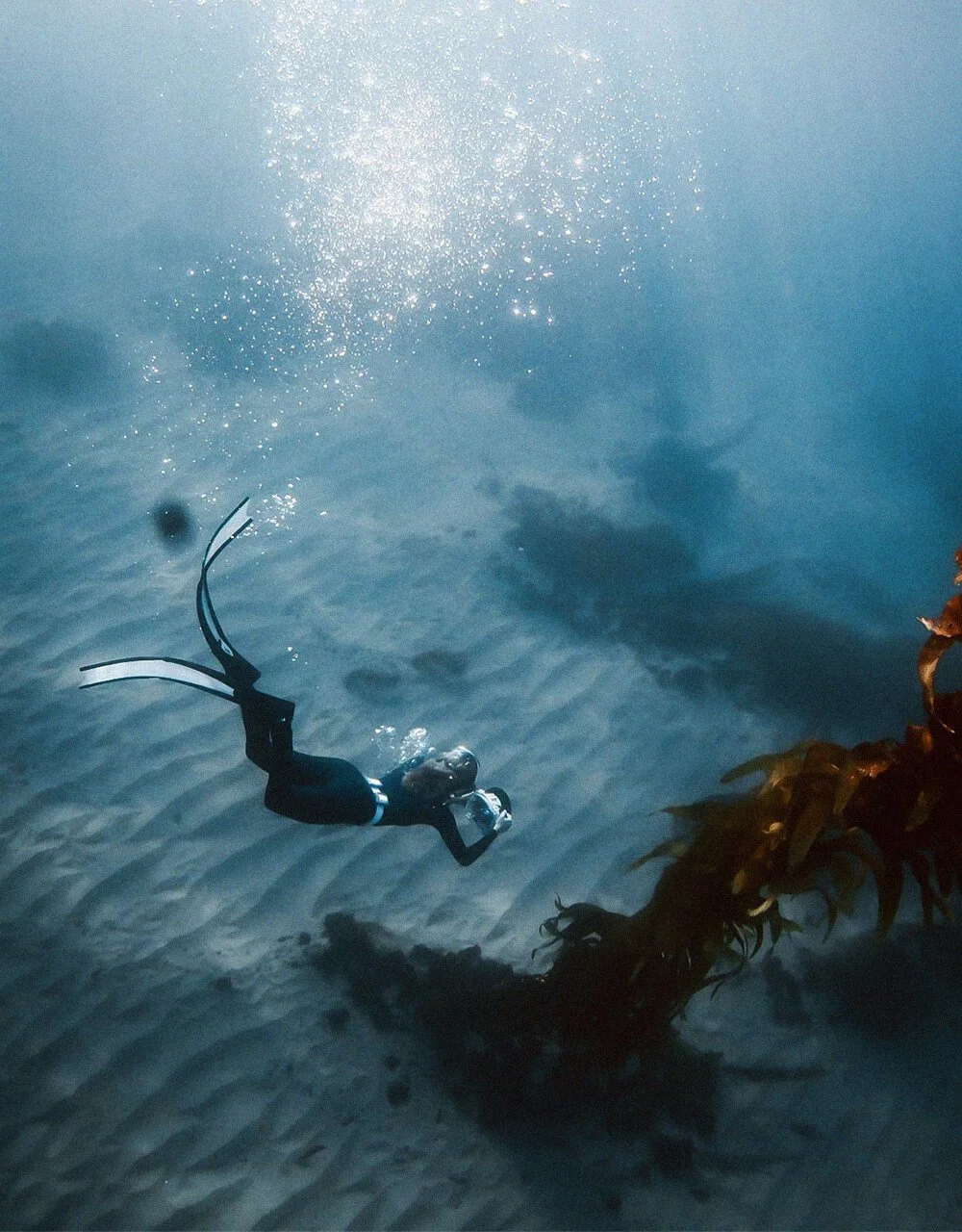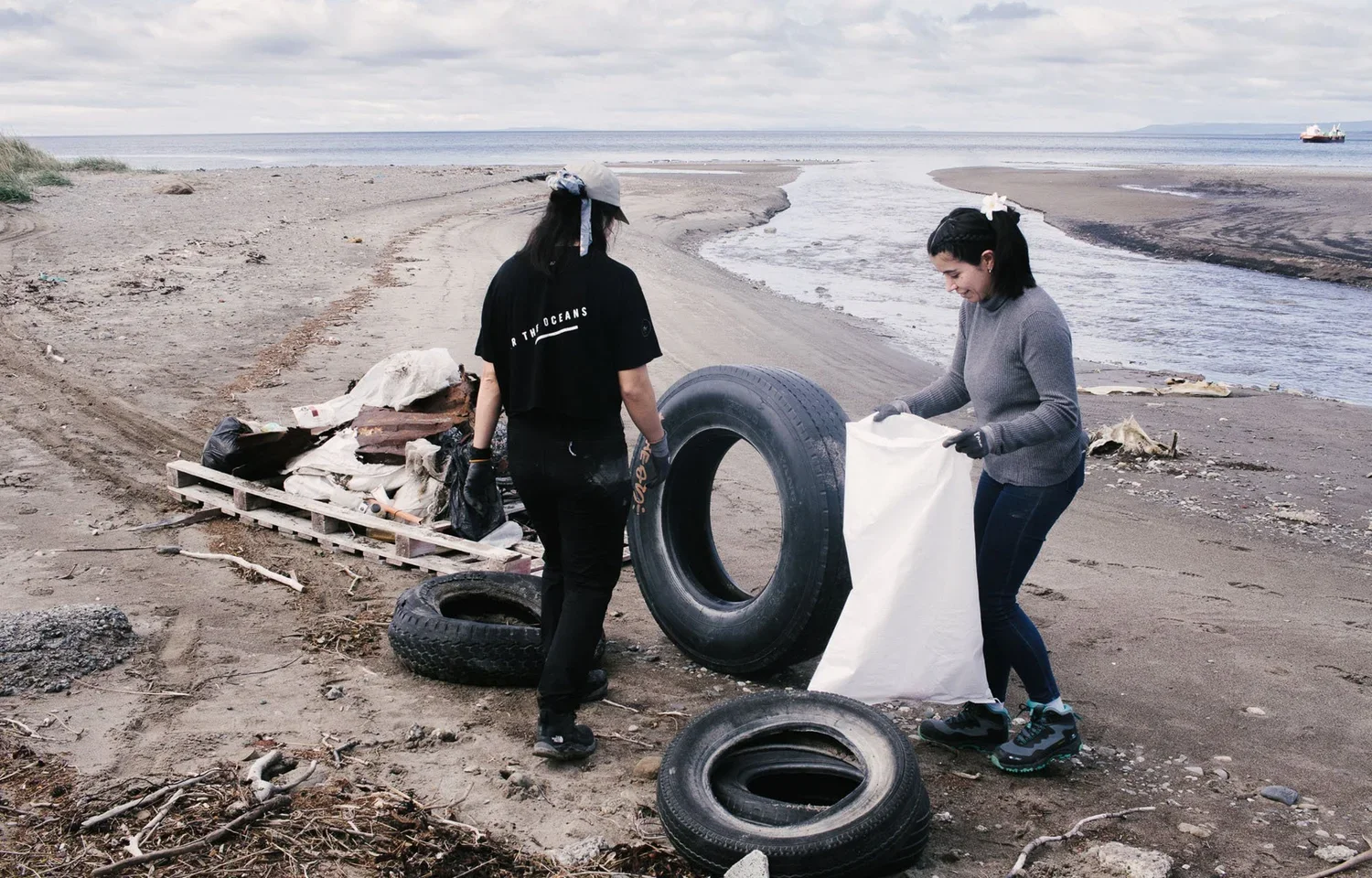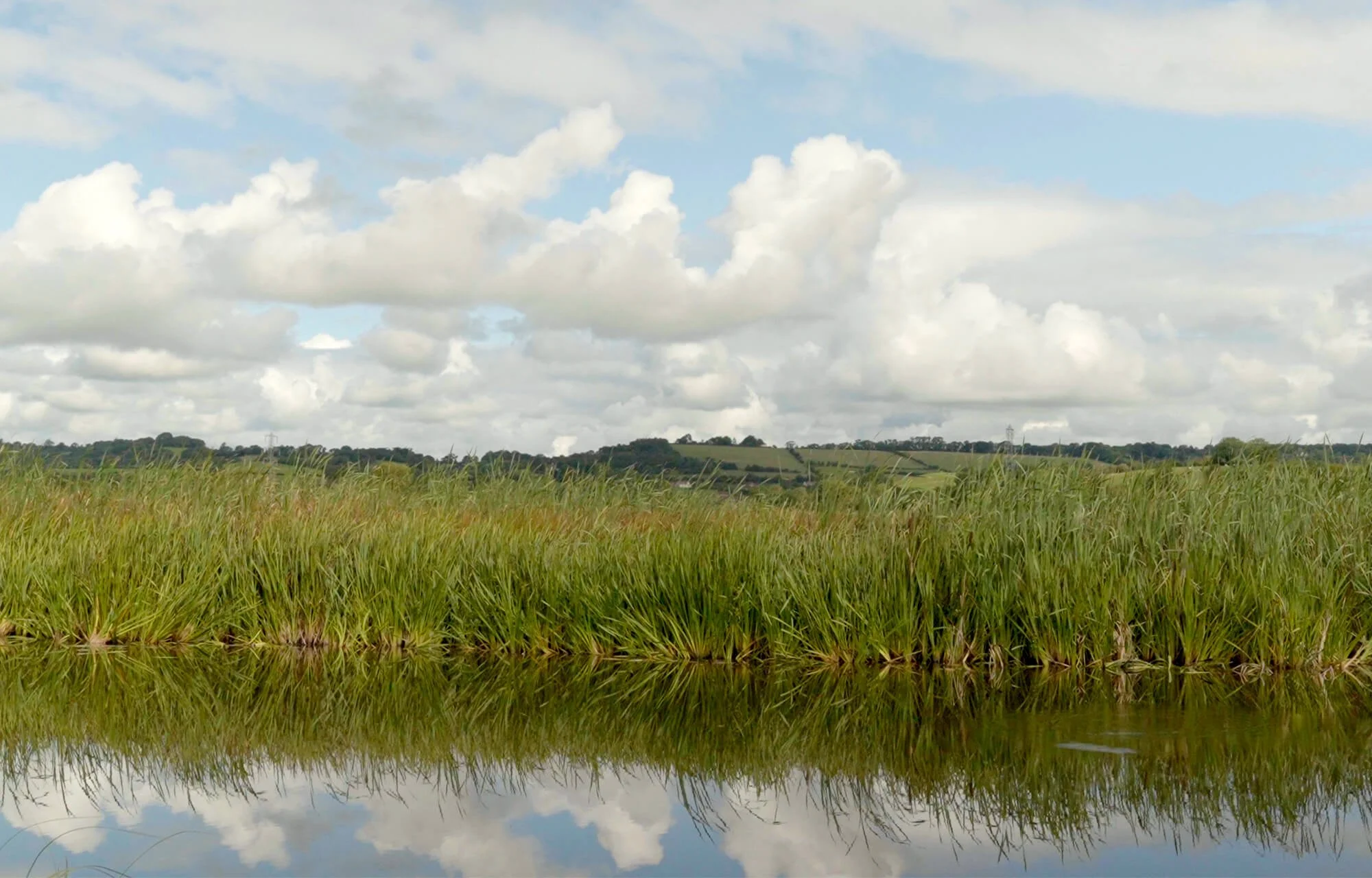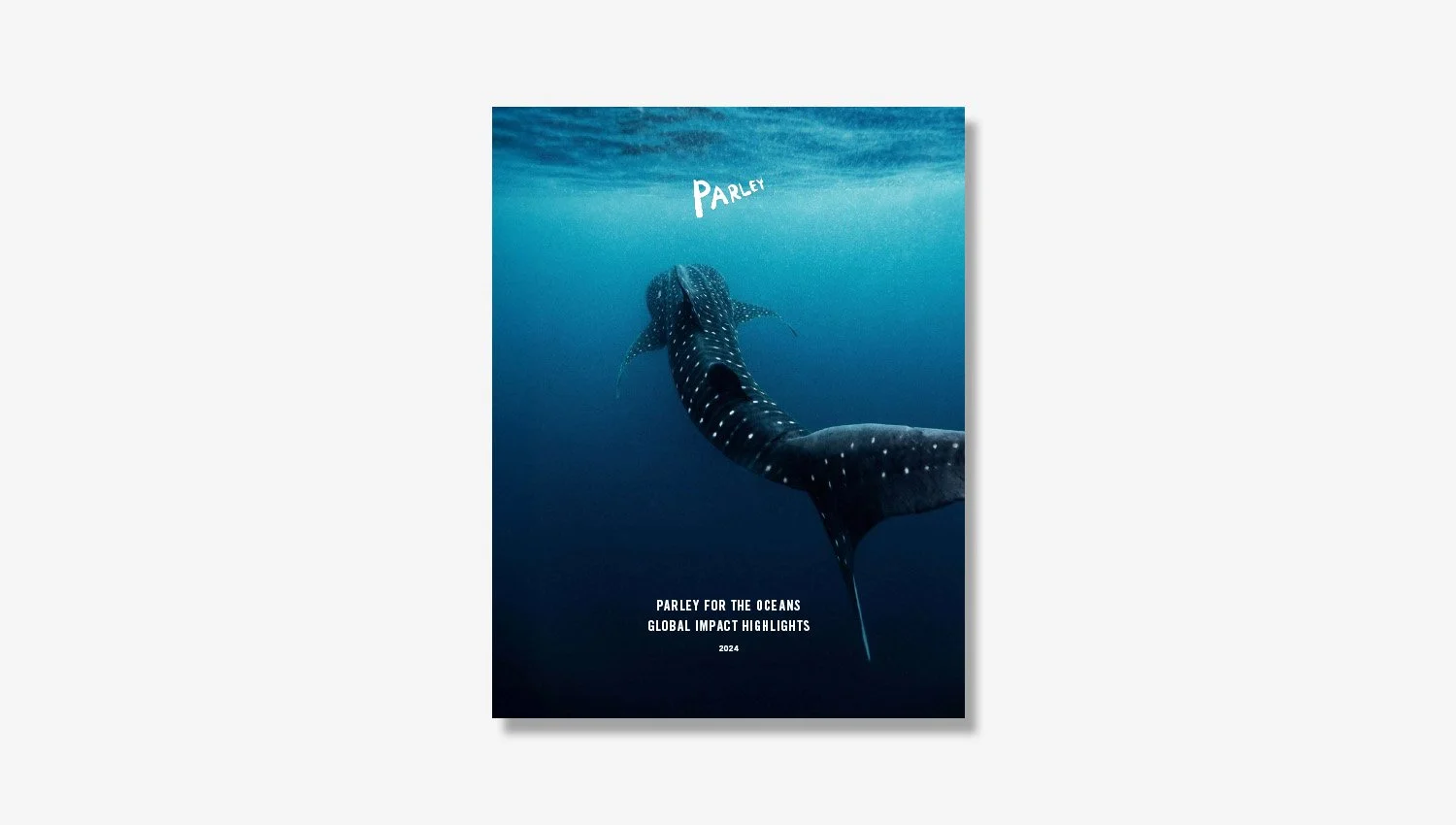Exploring the Underwater Realm with Anuar Patjane Floriuk
You don’t have to leave this planet to discover another world. The photography of Anuar Patjane Floriuk will transport you away from the present reality and yet deeper into it — to the underwater realm of existence via the kind of photos that make you believe in magic.
Our view of this planet and the role we play within the chain of life that runs it is largely limited to what we know and understand from sensory experiences. About 99 percent of the biosphere (i.e., all living space) is contained in the oceans. Land-dwelling life like our own is by far the minority, but because we don’t see beneath the surface, we turn our off minds to the existence, needs, and mystery of our marine cohabitants below it. To our own demise, our actions follow accordingly.
One promising sign for the future: advances in technology and platforms for knowledge sharing (like this one) are opening our eyes to the beauty. And we owe thanks to the world's underwater photographers for showing us the light.
We asked photographer Anuar Patjane Floriuk about his work and experiences beneath the surface and behind the lens.
When did you first become interested in photography?
When I was a kid, about 8 or 9 years old, my parents bought me a small camera that used 110 film and since then I’ve had this strange relationship with photography. Strange because I do not truly understand why it is so addictive.
Tell me about your "Underwater Realm" project. What drew your attention below the surface?
My mother is a marine biologist, a person that loves the sea. So when I was in high school she insisted that I should give diving a try. I did and I got hooked to the sensation of freedom and awe only diving can deliver.
Is there a specific moment or experience when you realized the oceans were under threat?
Not a specific moment, it has been a learning process. It is visible down there that underwater life is being affected by us; you see less and less fish and living coral every year in most unprotected places. Our current system of production and ways of consumption are the main factor that is driving our oceans to extinction and we are not caring enough. We are still very disconnected from the ocean.
Have you noticed changes in your favorite diving spots?
Yes, most of them have been negatively affected, especially the Gulf of Mexico, but there is one exceptional case where local people and government are caring and protecting sea life. I’m talking about Cabo Pulmo, in the Sea of Cortez. A few years ago, the local fisherman decided to stop fishing and bet all on ecotourism. That bet resulted in a great success economically, socially, and ecologically. What used to be an almost lifeless place now has a complete life chain, even bull sharks are back and orcas come and visit often. Cabo Pulmo is a true example that by letting the ocean recover, it will do so by itself. Stopping the human impact is the only thing needed. The oceans will do the rest.
How would you describe the experience of diving and shooting underwater? Is there one moment or feeling that sticks out in your memory — or that keeps you coming back?
It is an absolute pleasure to be underwater; taking photos down there is a plus, an extra. The feeling of diving, of being in the middle of the ocean on a small boat, a total disconnection from urban life and reconnection with the ocean and nature, that is what keeps me coming back to diving.
Many of your photos are in black and white. Can you tell me a little more about your methods/gear and decision to capture the underwater world in monochrome?
Black and white photography has a unique and psychological effect, it operates on the subconscious level more effectively than color photography — that of course is my opinion. Also, by choosing black and white I’m making a statement. I’m accepting photography as what it is: an interpretation of reality and not reality itself, so by doing so it is possible to focus more on the emotional side of the image, instead of the rational side.
I usually take with me a small Sony RX100 and a Nauticam housing plus an Inon wide angle wet lens. Big cameras and huge housings are truly overrated and compact cameras are getting to the point of achieving the same image quality as big dSLRs
I don’t really follow a method for creating images, I just use my intuition and by being relaxed, it is possible to visualize beforehand the scenes that you want to capture, or in some cases I imagine a scene, like an archetype or concept, and then try to photograph it.
What's the message you hope to send through your work?
That the oceans are not just a place where our food and petrol comes from; down there a beautiful world full of intelligent and sentient beings exists and we are killing it rapidly. We need to decelerate our consumption rhythm and start thinking differently.
Do you have an ocean hero?
Sylvia Earle. She is a legend and her passion for protecting the oceans is motivating and contagious. I truly support her idea that by creating strategic marine reservoirs, what she calls "hope spots," we would ensure the survival of many species and contribute to the overall health of the ocean. Please take a look at her ideas and follow her.
Favorite sea creature?
Humpback whales :)
Are you optimistic about the future of the oceans? Do you think change is possible?
I think right now is the time limit, if we don't do something about it soon, we will lose the opportunity to restore equilibrium. Less than half of the coral reefs are left and the biomass of many species like tuna and mackerel has been reduced to around 5 percent, so we are pushing species to the brink of extinction.
I’m optimistic because there is still time to do something about it and I know how noble the ocean can be. We just need to leave it alone and it will recover. But the true problem is that we value money and objects more than we value our health and nature, that is why is so hard to make people care about anything.
We are doing what we can to create awareness and showing the beauty of the underwater world, but the problem is deeper. Some people are just too alienated from nature and the only way to feel normal is by consuming objects, consuming nature, and consuming themselves. And worst of all, this psychological profile reigns among the economic elite — and those are the ones that hold the power to make the big changes. They can change the energy industry for better and they can change the fishing policies, but they don't want to lose profit. They want things to remain the same.
We as “normal” people can help a lot by choosing what we eat wisely and by consuming only what we need. This will slow down the machine, but we need the elite to join and start caring, not just profiting. Profit without caring for nature is really disgusting these days and we should let the big industries know that by choosing only the products that are correctly produced.
ANUAR PATJANE FLORIUK
Social anthropologist and independent photographer Anuar Patjane Floriuk has traveled extensively and embarked on many expeditions around the world to create a body of work focused mainly on conservation and fine art photography. His work has been published internationally in travel, conservation, and photography magazines. Most recently Anuar was awarded first place in the National Geographic Traveler Contest 2015 and second place in the World Press Photo Contest 2016.

